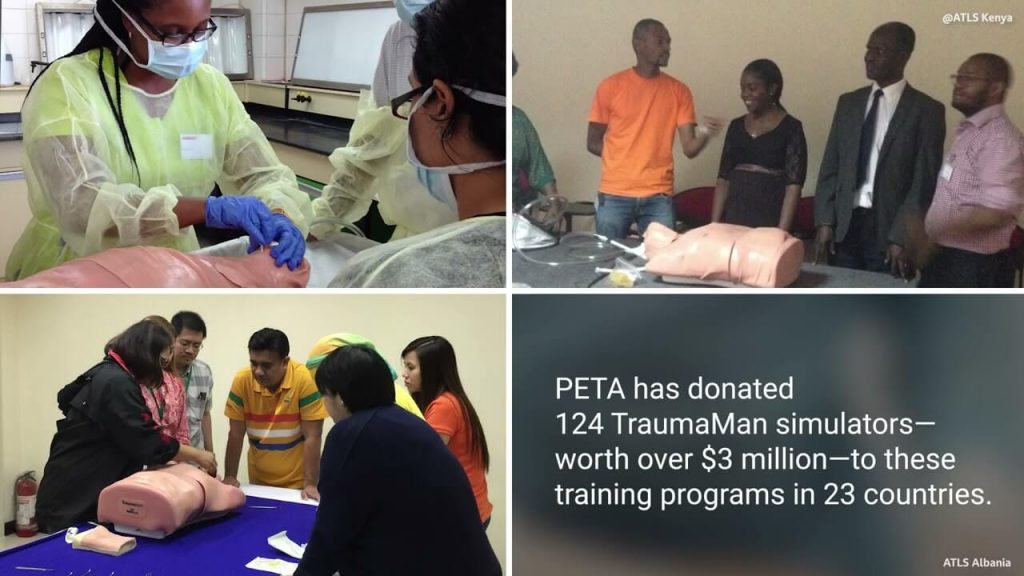Cutting open other animals as part of learning how to treat humans’ life-threatening injuries is cruel and highly ineffective. Thanks to PETA’s donation of two advanced TraumaMan human-patient simulators, that will no longer be part of Albania’s Advanced Trauma Life Support (ATLS) program.
The TraumaMan simulation models, which just arrived at the University Hospital of Trauma in Tirana, are human surrogates that will prevent 12 to 18 sheep each year from being mutilated and killed in archaic surgical practice drills.
The simulators, manufactured by Simulab Corporation, will make a meaningful difference for animals and set a compassionate example for similar medical training programs around the world.
“ATLS Albania greatly appreciates PETA’s generous donation of realistic TraumaMan models to our Advanced Trauma Life Support (ATLS) national program, which will allow physicians to learn how to effectively treat life-threatening injuries without practicing on animals. No longer will sheep or any other animals be used in our ATLS training, and we look forward to permanently switching to modern animal-free simulation technology that will reduce training costs, improve patients’ health, and spare animals’ lives.”
—Agron Dogjani, M.D., Ph.D., National Chair of ATLS Albania, Professor of Surgery at the University of Medicine, Tirana
PETA’s TraumaMan Donations Spare Animals’ Lives
PETA has donated 124 TraumaMan simulators, worth more than $3 million, to ATLS programs in 23 countries—including Bangladesh, Iraq, and Sudan—sparing the lives of more than 2,000 animals each year and providing surgeons with superior, human-relevant training. Studies show that doctors who learned lifesaving surgical skills on human simulators are more proficient than those who trained on animals.
In 2019, a PETA scientist and a surgeon published a study in the Journal of Surgical Education that found that our TraumaMan donation program had “successfully transformed the surgical skills laboratories of … international ATLS programs to replace animal use with non-animal simulation models that are more anatomically realistic, cost less, and allow trainees to repeat surgical skills until proficiency.”
Take Action to Help Animals Used for Training
No animal should die for medical training. Please urge Oregon Health & Science University (OHSU) to stop maiming pigs in its obstetrics and gynecology (OB/GYN) physician residency training program. Encourage the school to switch to superior, animal-free methods, as the University of Texas Southwestern Medical Center recently did after hearing from PETA:
The post PETA Donates Lifesaving Human Simulators to National Albanian Trauma Program appeared first on PETA.

